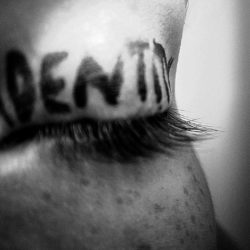
How FinTech & Biometrics Improve Financial Inclusion

Humans have been trying to find a solution for poverty for, well, as long as we’ve had money. Anti-poverty policy can be traced back over 2000 years.
Sadly we have yet to solve the problem.
Unfortunately, some people and societies have tried to push the onus and responsibility on the poor themselves in order to limit their own responsibility in the subjugation of a section of the population. At the same time, though, revolutions and social movements also show us how strongly people are willing to fight for economic equality.
The question is, of course, how we reach this equality. The gap between the lowest and highest earners is nowhere near closed and not everyone in the top 1% is going to willingly dissolve their estates in order to help improve the fortunes of the neediest segments of the population.
Don’t worry. There are things that can be done to help people improve their financial health. All we need is a little help from FinTech and biometrics.
India is one of the trailblazers when it comes to enacting biometric financial services. The government has enacted a platform called India Stack to increase financial inclusion and innovation. This is a major undertaking considering India’s population of over 1 billion, of which 19% are unbanked and 29.8% live in poverty. The platform aims to democratize the Indian financial system by creating biometric digital identities (Aadhaar) for all Indian citizens, granting them access to financial services across the country.
In this new Indian system, retailers use a fingerprint POS device like Fingpay. Instead of exchanging cash or credit or debit, the customers scan their fingerprints and choose the proper financial account to transfer payment.
This technology upgrade means millions of people now have access to a more secure payment system and is a great illustration of the importance of biometric and FinTech advancements.
Here in Canada, we have recognized the value in the technology and are starting to introduce it to our financial market. ATB Financial and Boyle Street Community Services have partnered to create a new system for vulnerable populations in their own backyard. This new company, Four Directions Financial, a financial institution for low-income or homeless clients, uses biometrics as a form of identification.
This is a game-changing and desperately needed service, as these clients have uneven access to traditional forms of identification. Prior to the creation of this new service, clients were forced to go to payday loan companies for services and carry any cash they had on them, putting them at risk of violence.
Four Directions is the first financial institution to use biometrics to aid low-income Canadians, but I hope others across the country follow their lead. So much good can be done by taking steps to increase financial inclusion. Thanks to FinTech and biometrics, we have the technology. Now we just need the will to fully enact it.
Moving to Africa, Kenya has been using biometric smart cards to distribute its monthly stipend to vulnerable groups (disabled, elderly and orphaned citizens). This is a much needed upgrade, as the stipend system had been struggling with issues of fraud, corruption and inefficiencies. Distributed by KCB, the smart cards use fingerprint recognition to limit fraud and ensure the proper candidates are using the funds.
Meanwhile, Humaniq has launched an app designed to give the unbanked new access to financial services. Currently operating in Rwanda, Senegal, Uganda, Tanzania and Zimbabwe, users can make and receive payments on the app and can earn Humaniq cryptocurrency by updating their biometric data. Stating that their aim is “to give people in developing nations more power to change their lives,” the company is also launching a Humaniq Global Challenge to find the best new blockchain projects created for the unbanked populations.
This is a company that is set to make a major impact. Keep an eye out for what they launch next.
It’s been over 10 years since people started the quest to “Make Poverty History.” The journey has been tumultuous and (to be fair) amazing strides have been made, but we still have a way to go before poverty and the myriad problems that accompany it are eliminated.
Technology like FinTech and biometrics are doing amazing things to open up financial services to the billions of people that had previously been unbanked. This is giving more people access to financial security and convenience and can help keep us on the path to a more equal society. It’s exciting to see how different parts of the world are using the technology.
Poverty is not history quite yet, but FinTech is helping us get closer to that goal.

